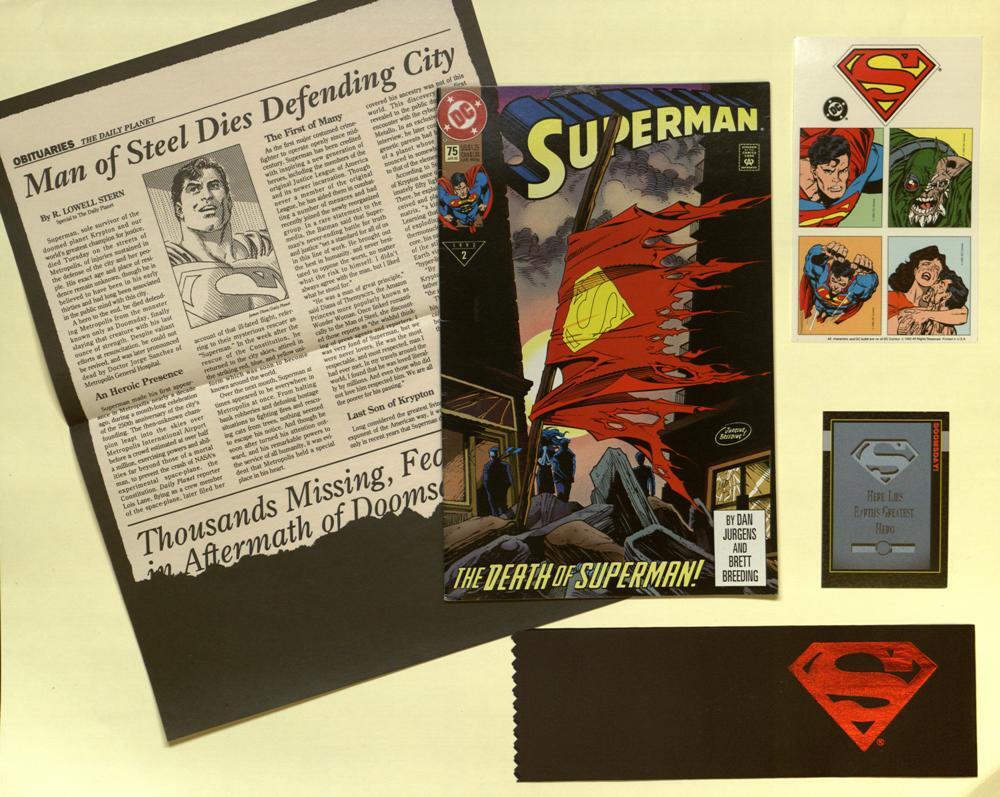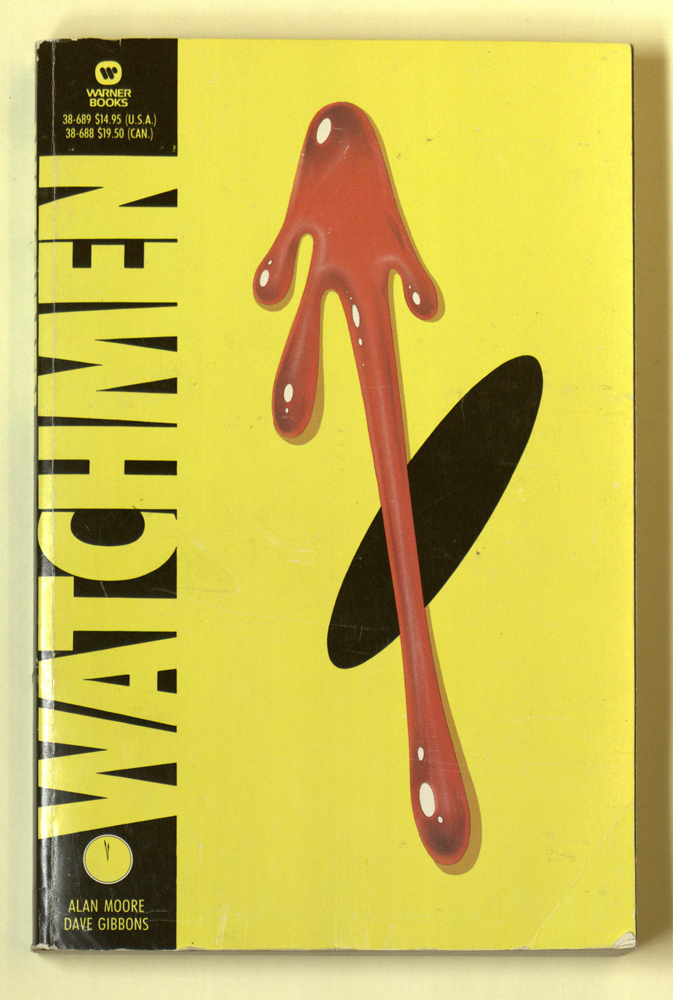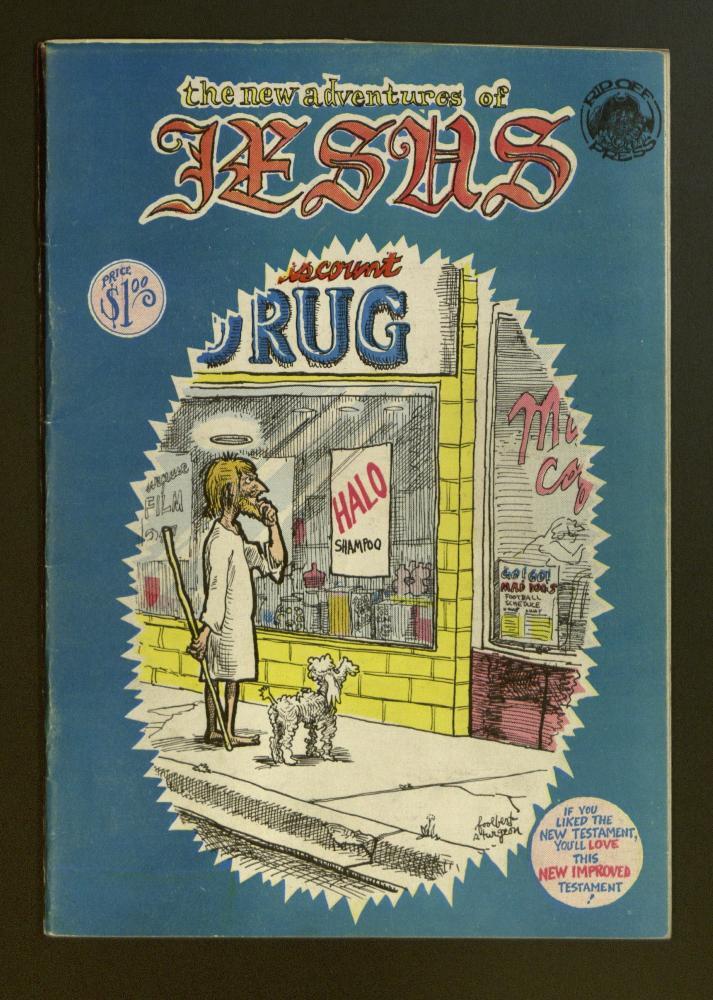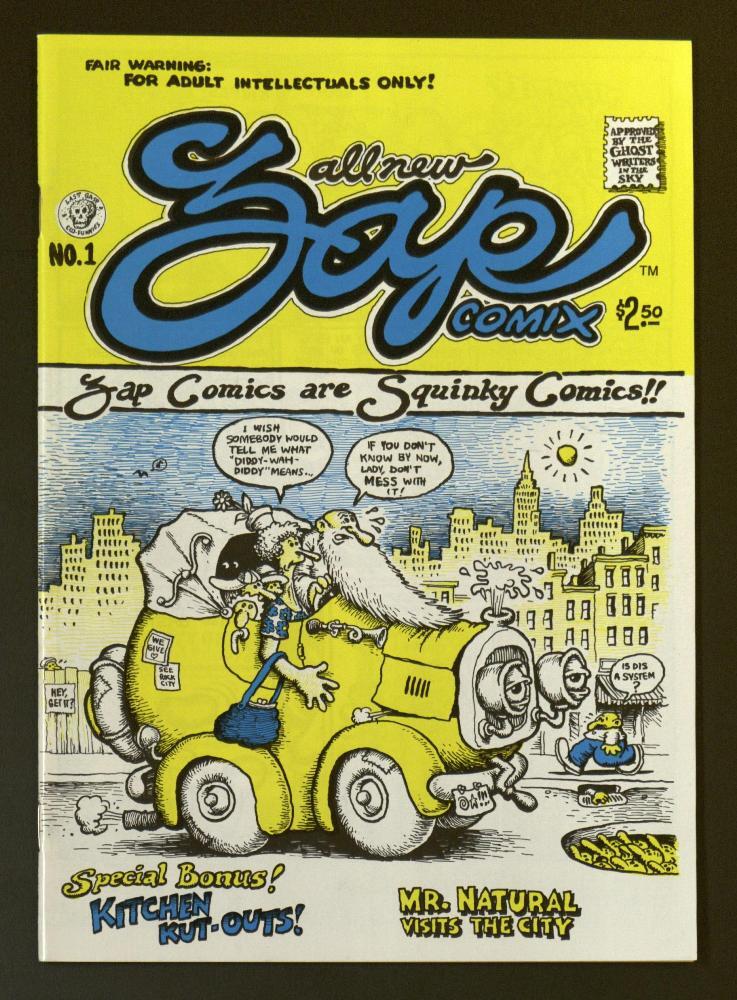Alley Oop
Superheroes, Censorship, and Underground Comics
The Comics Code
The Comics Code was a form of self-censorship developed in 1954 by the comics industry in response to the book Seduction of the Innocent by Dr. Fredric Wertham. The book claimed that comics were responsible for turning children into juvenile delinquents, giving girls the wrong idea about their place in society, and implementing and reinforcing "homosexual thoughts." The Comic Industry was in danger of being toppled, so they created the code to self-regulate and produce "family friendly" comics.
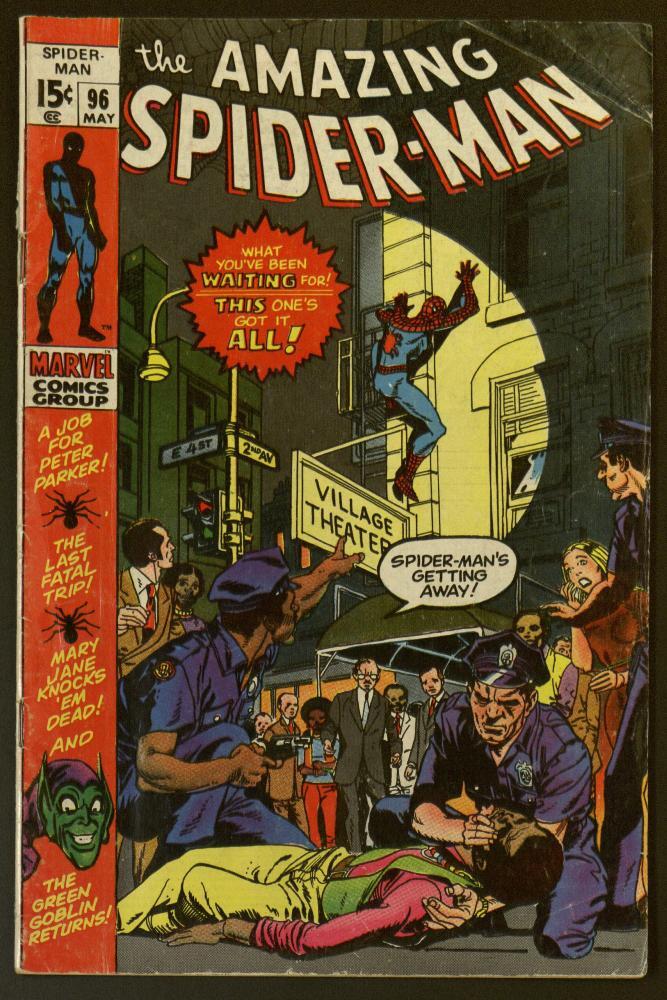
Stan Lee and Steve Ditko
The Amazing Spider-Man #96.
New York: Magazine Management Co. Inc., 1971.
©1971, Magazine Management Co., Inc.
Spider-Man
Spider-Man first appeared in Amazing Fantasy #15 (1962) and was subsequently presented as The Amazing Spider-Man in 1963 and has been offered as other series such as The Spectacular Spider-Man and Web of Spider-Man. This Marvel hero is one of the best-selling characters of all time and beloved by fans. This issue, #96, is one of three issues (May 1971) that did not carry the Comic Code Authority seal. Stan Lee was asked by the US Department of Health, Education, and Welfare to produce a comic showing the dangers of drug use. Lee agreed and created the comics, which were then turned down by the Comics Code Authority due to the discussion of narcotics. Lee printed the comics anyway, assuming the government would approve showing drug abuse in a negative light. This prompted the CCA's first update in the code, to include allowing comics to show the negative effects of illegal-drug use.
The Death of Superman
One of the best-selling comic books of all time, The Death of Superman piqued not only the interest of comic fans, but the general public as well. The event made national news and comic book stores were packed with anxious fans trying to get their hands on the historic issue. In this storyline, the "Man of Steel" meets his match in "Doomsday," a genetically engineered monster who was built to survive at all costs. While trying to protect his beloved city of Metropolis, Superman embarks upon an awesome battle with Doomsday, which seemingly ends both of their lives. The Death of Superman was presented as a "Memorial set," which included a black arm band, trading card, Daily Planet obituary, a full color memorial poster, and trading stamps.
Watchmen
The traditional comic book hero is a clear cut champion of "truth, justice and the American way" however, in the mid-1980's a new generation of comic hero was evolving and the line was beginning to blur. Alan Moore and David Gibbons created a new league of superheroes who were not the selfless, ideal heroes fans are accustomed to, but rather, jaded super-humans struggling with their own ideologies and demons. Moore and Gibbons delve into the psychology of the characters, exposing serious flaws and the impact they have on the world they live in, both positive and negative. A movie version of the graphic novel was released in 2009.
Underground Comix
Frank Stack
Frank Stack, Professor Emeritus of Art at the University of Missouri, is one of the pioneers of underground comics, as well as an accomplished painter and print maker. Born in Houston, Texas, Stack earned a B.F.A. from the University of Texas and an M.A. from the University of Wyoming. After graduation, he received additional training at the School of Art Institute of Chicago and Academie Grande Chaumiere of Paris. He sites V.T. Hamlin, Gustave Dore, and Roy Crane as some of the strongest influences in his comic writing and drawing.
Frank Stack created his first comic, The Adventures of Jesus, in 1964 and is considered by many to be the first underground comic. The Adventures of Jesus series is a satire, lampooning the religious beliefs of many Americans. To protect himself from retribution, Stack wrote under the pseudonym, "Foolbert Sturgeon" when publishing the Jesus comics. He has also created comics such as Doorman's Doggie, Feel Good Funnies, Amazons and contributed to American Splendor, Snarf, Comics Journal, and Drawn and Quarterly. Stack continues to create works of art and has most recently published The New Adventures of Jesus: the Second Coming.
Frank Stack has donated some of his work to the Special Collections Department of Ellis library. The Frank Stack Collection contains material from Stack's college days and the early underground comic book period up to 1995, with the publication of Our Cancer Year. An extensive collection of letters from Gilbert Shelton, William Helmer, the Rip Off Press and others is included. Continuities by Harvey Pekar for which Stack prepared art work are also in the collection.
R. Crumb
Robert Crumb, also known as R. Crumb, published his first issue of Zap in early 1967. Zap is one of the most well-known underground comix, featuring characters such as Mr. Natural and Flaky Foont. Crumb is also noted for his work on Fritz the Cat and Keep on Truckin, an icon of the 1970's. In 1994 Terry Zwigoff produced the film Crumb, a documentary exploring the life of R. Crumb and his family. The film won numerous awards, including the Grand Jury Prize at the Sundance Film Festival.
